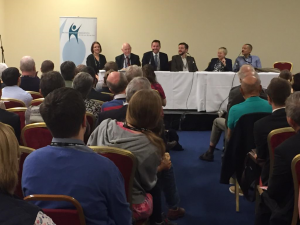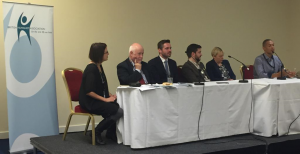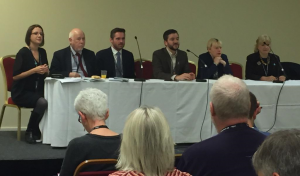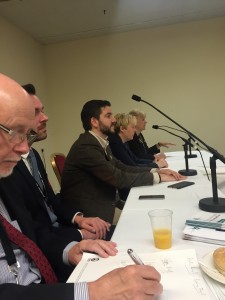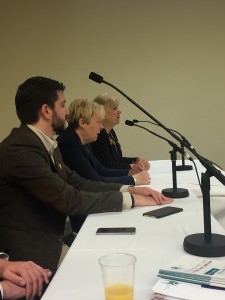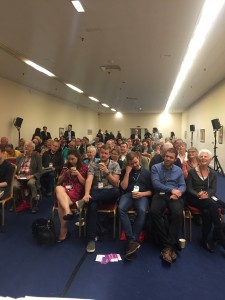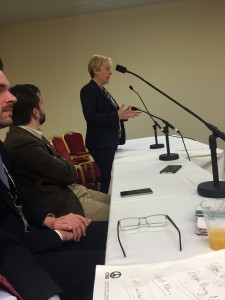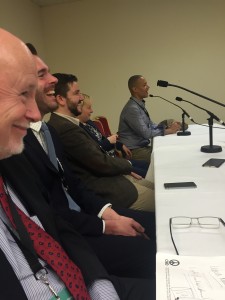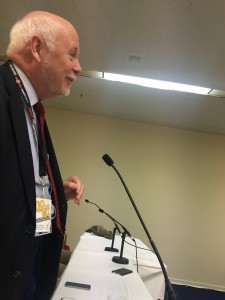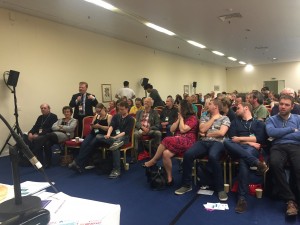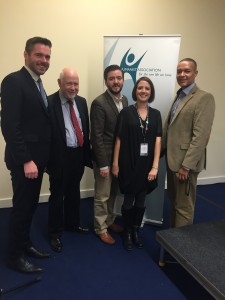Earlier this year, Joan Smith became Chair of Labour Humanists. We interviewed her about her work, what Humanism means to her and how it relates to the Labour Party.
Tell us a little about your work, background and personal life
I was incredibly lucky to be born into a non-religious family. My father was an atheist, he didn’t stop me going to church – I went to Sunday school for all of two weeks – but he brought me up to question everything. I’ve never believed in a deity and I’ve always searched for rational explanations – I realised early on that you don’t have to understand everything about the universe to recognise a bad explanation for how it came about, eg any species of divine intervention. I withdrew myself from RE when I was a teenager because it certainly wasn’t my idea of education.
I’m a journalist and novelist, and I’ve been involved in human rights campaigns for almost two decades. I chaired the English PEN Writers in Prison Committee, campaigning for the release of imprisoned writers in many countries, and I’ve also advised the FCO on promoting freedom of expression. Since 2013, I’ve been Co-Chair of the Mayor of London’s Violence Against Women and Girls Panel (now the VAWG Board), which draws up policy to reduce sexual and domestic violence for the whole of London.
I’m passionate about equality and universal rights, and I’ve always rejected the idea that people can’t behave well without religion. I even wrote a book (Moralities: How to end the abuse of money and power in the 21st century) about it.
What are the main achievements of Humanism in British public life so far?
I’m a big fan of the Enlightenment. Humanism has played a vital role in moving towards a more enlightened society where everyone has the same rights, regardless of whether they have a religion or not. For me, recognising the intrinsic value of the human spirit is the definition of being modern, especially at a time when there is so much evidence of what happens if the dark side of human nature is given free rein.
We are living in grim times and it’s easy to forget how much the UK has changed for the better in recent years, largely because of humanist and secular campaigns against religious privilege. It’s great that there are now humanist alternatives to religious weddings and funerals, and I loved the slogans on buses telling people there probably isn’t a god.
What drew you to Humanism?
It’s a natural home for someone with my beliefs. I’m delighted to be a patron of the BHA and many of its campaigns – exposing the disastrous and divisive effects of ‘faith’ schools, for example – are vital if we’re ever going to live together in a tolerant and diverse country. I know many people are religious but I think the right not to have a religion is as important as the right to manifest one.
In your mind, what makes Humanism and Labour natural bedfellows?
The Labour party is committed to a fairer, more equal society. Dismantling privilege, inherited and institutional, is a huge task but we wouldn’t have got as far as we have without a political party willing to take it on. Popular campaigns are important but change comes about through Parliament, and I see the job of Labour Humanists as trying to persuade as many MPs as possible to support humanist values and legislation. Humanist councillors are essential as well – local authorities need to be inclusive, and that means thinking about the needs of non-religious people as well as those put forward by ‘faith’ organisations.
What remains to be done to make British political life more secular?
A great deal, starting with the removal of automatic seats for Anglican bishops in the House of Lords. The upper chamber is in dire need of reform anyway, but the privileges enjoyed by the Church of England in the legislature are indefensible. There is a kind of default thinking that fails to see religious privileges for what they are – I could scream every time I hear ‘Thought For The Day’ starting on the Today programme.
I’ve already mentioned ’faith’ schools, which are a terrible idea – they take one small aspect of personal identity and privilege it above all others. We can see what that did in Northern Ireland. Children from different backgrounds – Christian, Muslim, Jewish, Hindu, non-religious – need to grow up, play and learn together.
I’ve written about the way politicians talk about people being in their ‘thoughts and prayers’ after a disaster, without knowing anything about the victims. The automatic resort to religious language in public life, no matter how inappropriate, needs to be challenged – and we could start with getting rid of prayers at the beginning of each day’s proceedings in Parliament. If people want to pray, it’s a private matter. I certainly don’t think that priests, vicars, imams or rabbis should have a special place in public life.
You’ve written extensively on feminist topics, how do you think feminism and humanism are linked?
They’re both rooted in universal human rights. Traditionally, women and girls did particularly badly under many religious dispensations, forced to accept theories about being ‘different but equal’ which were nothing of the sort. I wrote about the persecution of ‘witches’ in my book Misogynies and in a more recent book (The Public Woman) I looked at how some of those pernicious ideas remain influential today. I’ve always thought I was incredibly fortunate, as a woman, to grow up in Europe at a time when Christian ideas about women were losing much of their influence. I’m almost speechless when I read about the enslavement of Yazidi women by Islamist extremists in Syria and Iraq.
What drew you to the Labour Party?
I grew up in a Labour family. It isn’t just tribal loyalty, although there’s a bit of that – my father took me to my first Labour rally when I was eleven. The party’s core values are closer to mine than those of any other party – single-issue campaigns eg tackling climate change have a place, but they belong inside a wide-ranging programme based on fairness and equality.
What do you think is the greatest achievement of the Labour Party to date?
There are so many, starting with the NHS. Everything from the minimum wage to introducing civil partnerships and a mass of equality legislation stretching back to the first Sex Discrimination Act under Harold Wilson in 1975. Some of these achievements are vast, daunting even, and others are on a smaller scale – but the net effect is moving towards a kinder, more tolerant society. That’s what humanism and secular values are all about. There is a great deal still to do but the humanist tradition in Labour has some distinguished supporters and I hope we can build on that.

